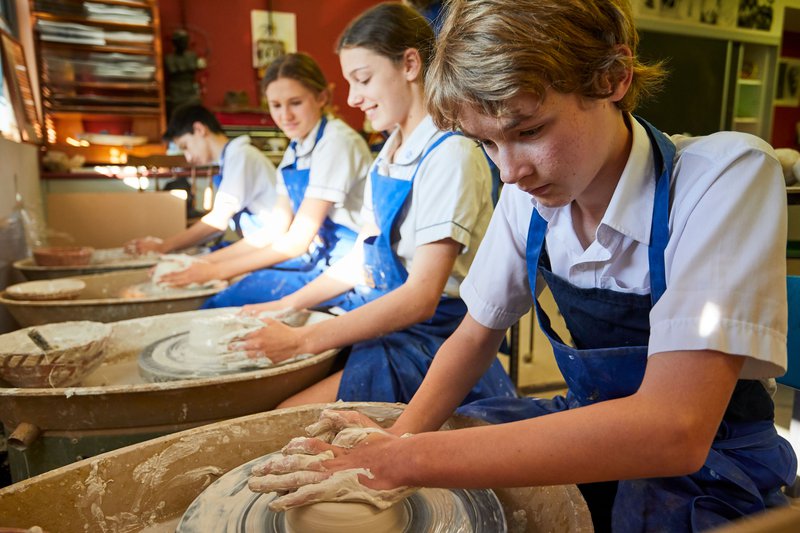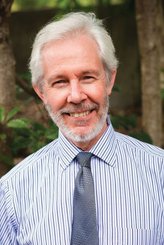

“He who knows the why of his life can bear almost any how” Friedrich Nietzsche
If the COVID crisis has taught us anything, it’s to ask questions about our way of life. What will sustain us through a time when all the material certainties are gone? We all face dark times in our lives, but the COVID crisis has taken us through dark times together.
The experience has marked a generation and there seems to be a sense we can’t go back to being the same. The old certainties have been dissolved. If anything is telling us we need a new compass for direction, the COVID crisis has.
As many commentators have written, people have needed a new sense of purpose and direction to get through the COVID time, a sense of meaning. The sense of meaning gives purpose in the absence of outer constraints. So how can education ignite the inner spark that will sustain our students through this time, and on their future journeys?
Glenaeon’s long-term mission of providing a meaningful education has never been more needed. Here are just some of the meaningful moments a Glenaeon education uniquely gives to students growing up in a post COVID world:
- The Human Story: our Steiner curriculum sits as another tier of learning integrated with NESA syllabuses, providing an imaginative experience of the global and historical journey of humanity. Over the years of the primary and early high school, our students pursue the huge story that charts the rise and fall of epochs across the globe. They are given confidence to take their place as global citizens ready to play their part in the next chapter of the grand narrative that is human life.
- Creating beauty: all our students learn the creative arts, to draw, paint, sing, sculpt and act, but we are not an art school. We simply teach our students the arts so they learn to think in multiple perspectives, to realise that life is an unfinished composition, and that they have a creative voice to express their joy, and pain. Most importantly they learn to create beautiful moments that will provide them with endless fulfilment throughout life.
- Designing and making useful things: our students learn to make things, both useful and beautiful, designed by themselves, from sewing in Kindergarten, knitting in Class 1 to blacksmithing in high school. Have you noticed the many articles from the COVID time on the upsurge in artisan activities? People have wanted to make things, to take a stand and push back against a feeling of helplessness. Here is one from Saturday’s Herald on the resurgence in knitting: “For Millennials in particular it’s the idea of something wholesome but mindful and productive. It’s amazing the sense of achievement from finishing something. A lot of people use it for stress relief. It’s in line with cooking and baking. She says knitting also helps balance out the amount of time spent scrolling on smartphones: “You have to be using yours hands to knit.”
- Learning to collaborate, not compete: what has been the stand out learning politically through COVID time? The most successful world leaders have brought diverse people together and built community. They have practised the art of collaborating. Our non-selective, non-ranking classrooms prepare our future leaders to work collaboratively and to build community, a skill learned every day in every class. Take this verbatim comment from our 2019 Year 12 parent exit survey: Glenaeon has a very positive, engaging and accepting student culture; its bully-free, which is astounding in today’s Sydney”.
- The Healing Presence of Nature: during the COVID time, so many people have resorted to the healing power of Nature, whether forest, or gardens, or just green spaces. Our campuses are designed to embed our students in Nature, and Middle Cove’s unique bushland valley is a healing space in itself. Our award winning Outdoor Education program (Best in NSW 2019: Outdoors NSW) challenges students to go beyond their physical and personal limitations to reach a level of resilience and strength that continues to astonish their parents.
- The Power of Play: We are most human when we play, said Schiller. From self-directed play in the early years, to intense sport and games in high school, our students bring a sense of the playful to all that they do. Play liberates us from fixed forms but enables us to live with and within boundaries. Play gives joy in life and release from the restrictions of drudgery.
- A Touch of Transcendence: a sense of something higher, the phosphorescence of life, weaves through our classrooms, our school and our community life. We are inspired by the sublime moments of all cultures, including our country’s roots in The Dreaming.
And through it all, Glenaeon provides an academically enriched and rigorous education: we were in the top 7% of NSW high schools, HSC results over 2018-9.
So have you ever wondered how school could be both mainstream and meaningful? We’ve been doing it for over 60 years, and it works. COVID time has made us more relevant than we have ever been. Meaningful Lives.

































































